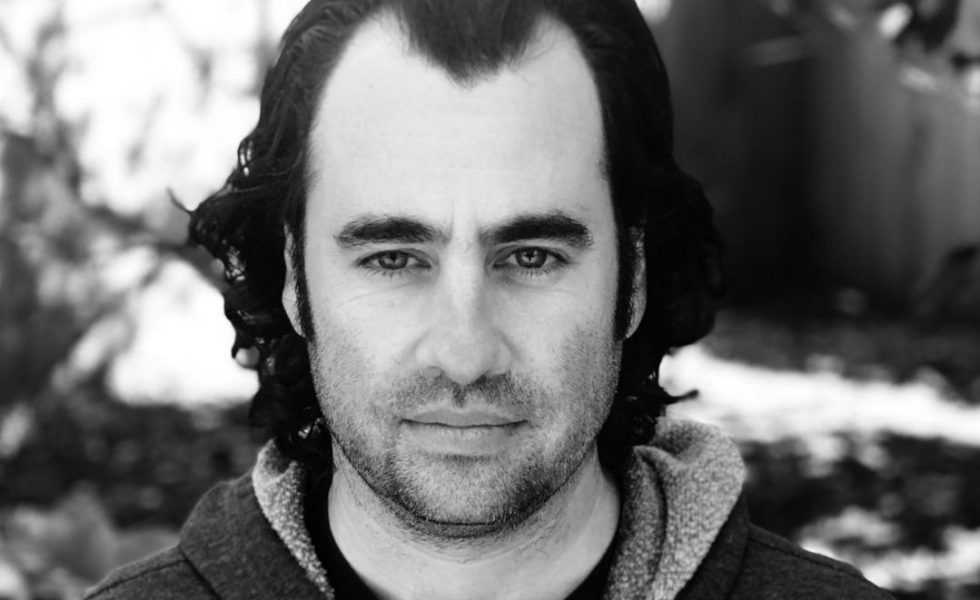“I hit a crossroads where I could have really gone all pop,” he explains over a Zoom with Blunt Magazine. “I was living in LA and I was doing all that, all those sessions, I’m working with all those artists…and I was like, ‘I’m not making music for the kid that I was.’ And I took real issue with that.” He articulates the purpose of why people in this scene make music more deftly than anyone has for a long time, though it still rings as true as it ever did: “I was like, ‘I just don’t know if I can go all in. I think I need to get back to making music for outsiders, for the people that remind me of who I was, so that they don’t commit suicide.’ So, I moved back to DC and reopened the old studio where I’d done the albums with All Time Low, Boys Like Girls, Cute Is What We Aim For, all that stuff.”
Being so prolific in his achievements and what he’s worked on, with ‘I Write Sins Not Tragedies’ and ‘Dear Maria, Count Me In’ only the beginning, Squire is surprisingly humble. He’s been left with a bad taste in his mouth by producers over-crediting themselves for their work with artists on social media (“I’m like, how does a band feel when they see you saying you wrote their song?”) and saw the milestone of being Grammy-nominated chiefly as an opportunity to celebrate the work that he does with his family.
“There are very few moments where your family sees all the work pay off, like Underoath, when we got nominated for a Grammy. That was an awesome moment because my family was like, ‘Oh my God’. Like your grandma’s like, ‘That’s crazy.’ But yeah, now they’re starting to see some of the work I do become more visible. It’s a good feeling, but it was never a goal. I assumed that if I wasn’t in a band, I was supposed to be behind the scenes…I could have been in a band and I could have stayed on stage. I made a choice to go behind the window and I always remember that and try to stay grounded.”
Even if you are behind the scenes, being the producer behind iconic albums of the calibre of Squire’s discography does enter you into a unique feedback loop with fans. There are those who blame Squire for ruining their favourite band’s newest output (they usually end up apologising a short time later), and there are those who revere him for his part in creating the albums that were formative to their lives. Squire’s role in Panic! At The Disco’s debut album, A Fever You Can’t Sweat Out, is particularly exceptional, especially given that it was only the third project he had ever produced.
Speaking on its triple platinum status, Squire points out that he thought the band would sell 15,000 records, max. “We didn’t expect that, we had no idea that it was going to hit the level of popularity and then scrutiny that it had. I think to their [the band’s] credit, they were really surprised by how big it got.” With the album sales came an intense level of criticism, although the album has been the subject of almost unanimous acclaim retrospectively.
“It was like, ‘If we had known it was going to be this big, we wouldn’t have done this, we wouldn’t have done that.’ And then you’re in a Catch-22, because then it wouldn’t have been as big. There was something about that record that just connected, and I think some of it’s lyrical…And then I think the fact that we didn’t know what we were doing was electric. We broke a lot of rules.” Having said that, Squire is happy for you to criticise him if you’re one of the few that doesn’t appreciate the album. It connected, it sold, but most of all, it changed his life, and he wouldn’t take back a single risk they took.
As we continue to navigate a time of global crises, where Aussie bands can no longer travel to meet Squire in his studio (à la The Amity Affliction) and Zoom calls glitch until we cry from frustration, the producer is using his experience to bring forth a new perspective on recording through Entangled Audio, a company that seeks to provide modern music tech solutions for the industry. What that means is that music recording is becoming more accessible, which Squire was thinking about even before we were all no longer allowed to leave our houses.
“In 2014, I had become obsessed with online recording and I had this vision that in the future, we would all have our own little portal and we’d be able to dial each other up and jam and the files would transfer,” he recounts. “We went into lockdown in late March last year, and I was talking to my wife and I was like, ‘Nobody’s coming to the studio, we gotta be prepared for that.’ And without skipping a beat, she said, ‘Whatever happened to that platform you were working on a long time ago?’” The result is the business that he’s now built, but also an even better outcome: “I’ve made more music in the past two years than I have in the past eight.”
For someone like the legendary Matt Squire to be advocating for flexibility and accessibility in music recording – well, there’s no one more uniquely positioned to vouch for it, is there? We’ll see new music that Squire’s been working on when the bands are ready, but we’ll also see him continue to transform the way that music is being made, and we’ll all be better for it. At the end of the day, Squire’s heart beats for the alternative scene, and our artists are safe in his hands; he appreciates that music can change people’s lives, and every move he makes is in service of that purpose.
“I don’t care if it’s online or in-person, let’s make it good. Let’s make great music for the people that need it. I think it’s been a really tough time for music, but a lot of great stuff is coming out. So I’m stoked about that whether it’s created in a room or online, but we need more. The outsider thing I take on, for myself, it’s very important. And that’s a need that the music community can really serve, is to just keep people from jumping out of windows.”



